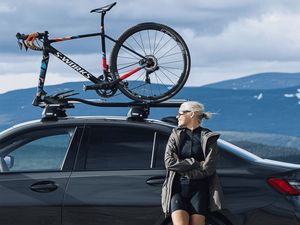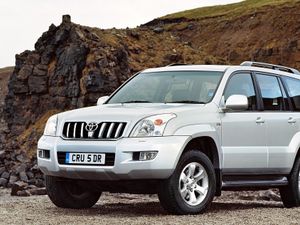Thinking of making modifications to your car this summer? It could affect your insurance premiums
We consider some of the popular changes motorists look to make to their vehicles and whether you need to inform your insurance provider about them.

The warmer weather of summer brings with it an increased sense of adventure, so it is only natural to want to pack up the car and head off on an explorative road trip.
Thanks to this, many motorists will be considering making modifications to their vehicles, whether that’s something as simple as tinting the windows to keep out the sun’s glare or bolting a massive tent to the roof, all of these mods can have an effect on insurance premiums.
The bottom line is, anything that falls outside of a manufacturer’s official accessory list is considered a modification by most insurance companies.
While many simple mods likely won’t see the current cost of your premium skyrocket, it could lead to your provider refusing cover in the unfortunate event of an accident.
With that in mind, we’ve run through some popular summer car modifications and explored their potential implications on insurance premiums.

Tow bars
Naturally, many vehicle owners want to carry greater payloads in the summer, what with the draw of camping trips or cycling adventures. Tow bars offer a great opportunity to either pull a small trailer or add bike carriers to the rear of the vehicle with minimal fuss.
It might seem obvious, but fitting a tow bar means you, as a driver, are likely to be towing trailers, caravans or bulky items, which puts the vehicle more at risk on the road. On top of this, fitting an aftermarket tow bar is considered to be a modification by most insurers and as a result, they will need to be informed.
In most cases, insurers will simply make a note on their systems and no additional charges are added, but some may find premiums increase, so it’s worth shopping around with providers to find the best deal.

Roof bars and roof racks
Again, adding roof bars or a roof rack will likely change the insurance profile of your vehicle, with some providers deeming it an additional risk, as it could effect the way the vehicle handles or increase the chances of theft or damage.
Similarly to tow bars, aftermarket roof racks and roof bars (those that weren’t fitted at the factory) are considered a modification, so it is wise to inform your insurer if you have added these.
There have been horror stories of insurers cancelling policies upon notification of a modification, but it is more likely they will add a note to the policy, or charge a small fee for an amendment.

Window tints
Aside from adding a certain aesthetic to your vehicle, window tints can reduce the amount of potentially harmful and distracting sunlight that can enter a cabin during the brighter summer months.
The law states that any vehicles first used on 1 April 1985 or later must have a front windscreen that lets at least 75 per cent of light through and the front side windows must let at least 70 per cent of light through.
Traffic police are often equipped with light measuring equipment that analyses window tint and they can issue on-the-spot fines for anything that falls foul of the regulations.
Even if the window tinting is legal, it can still have an adverse effect on insurance policies, as it is classed as a modification.
What’s more, specially tinted glass can be more expensive to repair or replace, which could have a negative impact on the monthly or annual cost of an insurance premium.

Alloy wheels and body work
If loading up your vehicle and hitting the open road isn’t your idea of a dream automotive summer, perhaps sprucing up your car with some fresh wheels and bodywork is.
Alloy wheels are one of the most common vehicle modifications, as owners look to reduce the weight of heavy steel options and lend their vehicles a sportier look. If alloy wheels weren’t fitted at the factory by the manufacturer, adding these is classed as a vehicle modification, so it’s in everyone’s interest to let the insurer know.
If there’s a particularly bad problem with alloy wheel theft in your area, this could see your premiums increase. But seeing as changing wheels is so popular, it typically doesn’t come with any heavy financial penalties.
However, adding wild body kits or additional body work to a standard vehicle is often frowned upon by insurers. Not only can these sporty kits affect the way a vehicle handles and drives, they are also not typically built to the same crash standards as OEM kit.
This means they are more likely to splinter or shatter in the event of an accident, forcing an insurer into costly repairs and potentially causing damage to other cars and pedestrians.
According to insurance experts Adrian Flux, adding a body kit can increase your premium by 10-15 per cent, with the company suggesting a specialist modified vehicle policy is best for these kind of additions.

Engine and performance upgrades
While not exclusively limited to summer, many car-owners make the most of the brighter evenings and warmer days to tackle those amateur mechanic jobs, such as making engine upgrades and simple performance tweaks.
Everything from air filter modification to aftermarket exhaust systems can improve vehicle performance and change the way it drives, meaning any changes like this need to be divulged to your insurance provider to ensure the appropriate coverage.
That said, upgrading the brakes and suspension system to something better than the standard issue parts could actually lead to a reduction in insurance premiums, should your provider deem it a significant safety improvement.

Sound systems and in-car entertainment
There’s nothing worse than being stuck in traffic on a long road trip and only having FM radio to relieve the boredom. This is perhaps why so many owners of older vehicles decide to refresh the in-car entertainment system for something more modern.
Thankfully, adding an Apple CarPlay and Android Auto-compatible head unit likely won’t impact insurance premiums, but it is still worth telling your insurer.
In some cases, a desirable head unit might increase the risk of vehicle break-ins, and therefore increase premiums.
I not informed, some insurers may not cover the cost of stolen or broken infotainment equipment if it varies from the standard equipment fitted to the vehicle.





